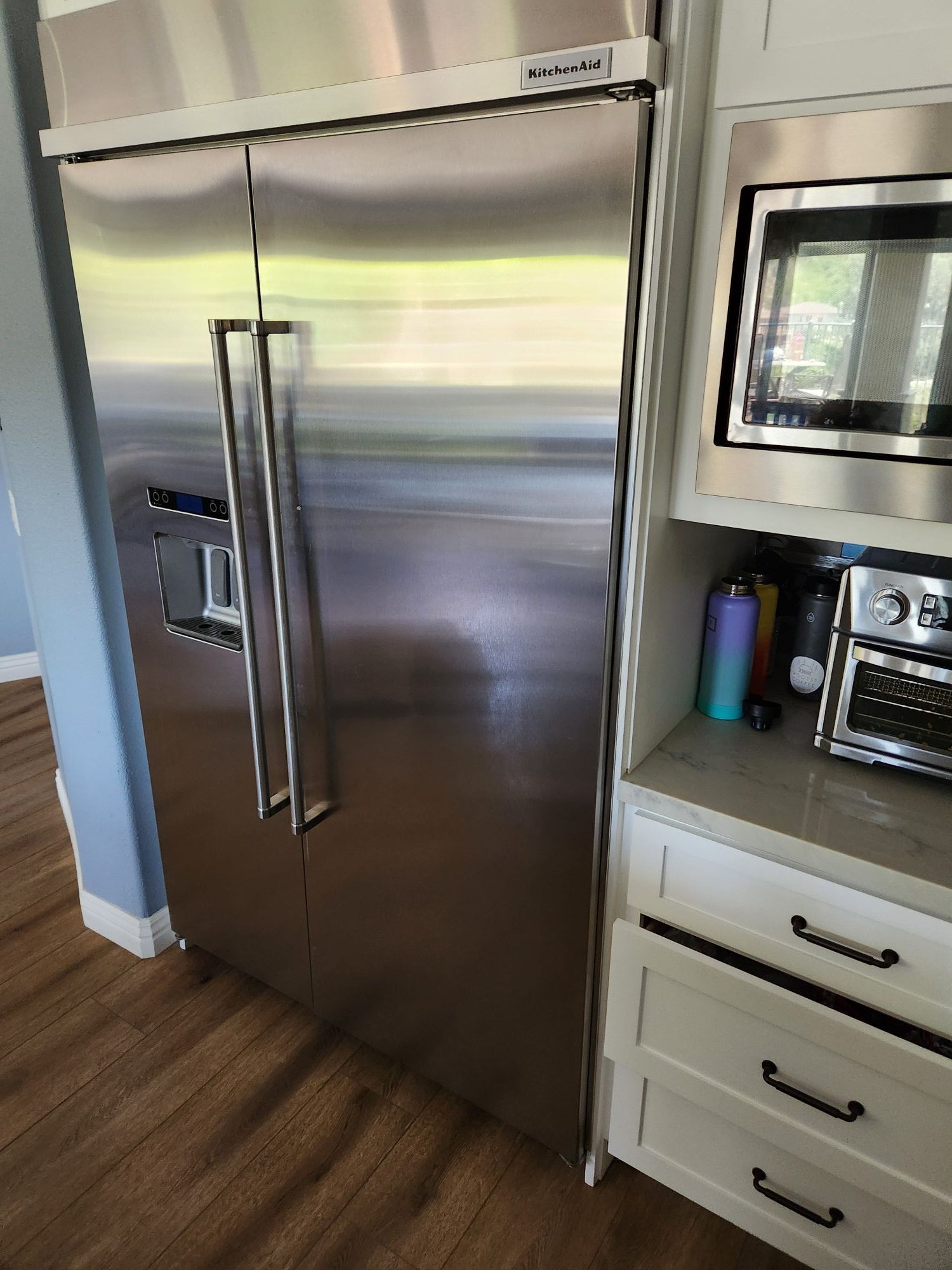Your refrigerator is one of the most essential appliances in your home. It works tirelessly to keep your food fresh and safe, but like all machines, it can face issues over time. While some refrigerator problems may be obvious, others might show subtle signs that can easily be missed. Recognizing these symptoms early and acting quickly can prevent larger, more expensive repairs later.
⠀
In this article, we’ll discuss the common signs of refrigerator problems, the potential causes, and when it’s time to call in professional help from Home Appliance Service Center.
⠀
- Inconsistent Temperatures
One of the most telling signs of refrigerator trouble is fluctuating temperatures. If you notice that your food is freezing in the fridge compartment or not staying cold enough, it could indicate an issue with the thermostat, evaporator fan, or even the compressor.
⠀
– What to do: Start by checking the thermostat settings. If they are correct and you’re still having issues, it could be a deeper mechanical problem. Inconsistent temperatures are serious because they can spoil food quickly, so addressing the problem early is crucial.
- Unusual Noises
Your refrigerator should run quietly most of the time, except for the occasional sound of the motor kicking in. However, if you start hearing loud banging, grinding, or humming noises, this could be a sign of a malfunctioning compressor, condenser fan, or evaporator fan.
⠀
– What to do: A noisy refrigerator is often a warning that something is wrong internally. Ignoring these sounds could lead to more extensive (and expensive) damage. It’s best to call a professional technician to diagnose the issue.
⠀
- Frost Buildup in the Freezer
While modern refrigerators are designed to be frost-free, excessive frost in the freezer can indicate a problem with the defrost system. This could be due to a malfunctioning defrost heater, thermostat, or timer.
⠀
– What to do: Defrost your freezer manually by unplugging the unit and letting the ice melt. If the frost returns quickly, it’s time to have the defrost system checked by an expert. Allowing frost to build up can reduce the efficiency of your refrigerator, causing it to work harder and use more energy.
⠀
- Water Leakage
Water puddles under or inside your refrigerator are clear signs that something’s wrong. This could be due to a blocked defrost drain, a cracked water line, or a faulty water inlet valve.
⠀
– What to do: If the defrost drain is clogged, you can try to clear it with a small brush or warm water. If the leak persists or if you’re unsure about the cause, it’s best to contact a professional technician. Unattended leaks can lead to water damage and mold growth.
⠀
- The Refrigerator is Constantly Running
While a refrigerator runs in cycles, if it seems like it’s constantly running without shutting off, this can be a symptom of a faulty thermostat or an issue with the condenser coils being dirty or clogged. It could also indicate a problem with the door seal, causing cool air to escape.
⠀
– What to do: First, check the door seal by closing a piece of paper in the door. If the paper slides out easily, the seal might need replacing. Clean the condenser coils and see if that improves the efficiency. If the problem persists, the internal components may need attention, and it’s best to seek professional help.
⠀
- Excessive Condensation
If you notice moisture building up inside the refrigerator or on the outer surface, this can indicate a problem with the refrigerator’s cooling or insulation system. Excessive condensation can be caused by faulty door gaskets, incorrect temperature settings, or issues with the defrost system.
⠀
– What to do: Check to ensure the door is sealing properly and that the refrigerator is set to the correct temperature. If condensation continues to be an issue, it’s time to contact a technician, as moisture buildup can lead to food spoilage and mold.
- Warm Air Around the Refrigerator
If the area around your refrigerator feels unusually warm, this might be a sign that the motor or compressor is overworking. While it’s normal for the back of the refrigerator to emit some heat, excessive heat could indicate a problem with the condenser coils or the cooling system.
⠀
– What to do: Clean the condenser coils to ensure proper ventilation and check that the unit has enough space around it for airflow. If the heat continues, it may indicate a deeper issue with the refrigerator’s cooling system.
⠀
- High Energy Bills
If you’ve noticed a sudden spike in your energy bills, your refrigerator might be the culprit. An inefficient refrigerator will use more power to maintain the proper temperature. This could be due to worn-out seals, dirty coils, or a failing compressor.
⠀
– What to do: Regular maintenance, like cleaning the coils and checking the seals, can help improve efficiency. However, if you’re still seeing high energy usage, it’s a good idea to have a professional inspect the refrigerator.
⠀
When to Call a Professional
While some minor refrigerator problems can be resolved with simple fixes, others require the expertise of a qualified technician. Ignoring early symptoms can lead to more significant issues that could result in complete breakdowns or the need for expensive parts.
⠀
By recognizing the signs of trouble early on, you can prevent your refrigerator from causing further headaches or worse, failing entirely when you need it most. The best solution is regular maintenance and addressing any issues as soon as they arise.
⠀
For reliable and professional repair services, trust Home Appliance Service Center. Our team of skilled technicians is equipped to handle all types of refrigerator problems. Whether it’s a minor fix or a major repair, we’ve got you covered. Don’t wait for the problem to escalate—contact us today for a quick and hassle-free solution.
Contact us
 619-928-5000
619-928-5000  Request Service
Request Service 
